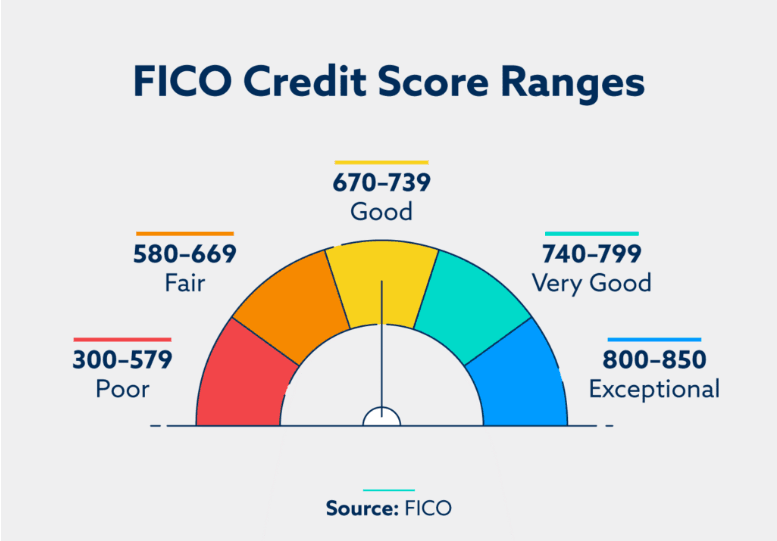
Credit Scores - What do they mean?
When you’re getting ready to buy a home, car, or even open a credit card, your credit score determines in large part if the answer will be yes or no, and how much interest you’ll pay. Credit scores attempt to capture the amount of risk you represent as a borrower. High scores represent individuals with little to no risk. Low scores represent people that are high risk for nonpayment. But how are the scores calculated, and what do they mean?
Let’s look at the different ranges of credit scores and how they are calculated.
Range of Scores
Credit scores are reported by three different major credit reporting agencies. They are Experian, Equifax, and TransUnion. Reporting from these three agencies makes up your FICO score. FICO scores have five ranges: Excellent, Very Good, Good, Fair, and Poor.
-
800-850 Excellent
Individuals in this range are considered to be low-risk borrowers. They may have an easier time securing a loan than borrowers with lower credit scores.
-
799-740 Very Good
Individuals in this range have demonstrated a history of positive credit behavior and may have an easier time being approved for additional credit.
-
739-670 Good
Lenders generally view those with credit scores of 670 and up as acceptable or lower-risk borrowers.
-
669-580 Fair
Individuals in this category are often considered “subprime” borrowers. Lenders may consider them higher-risk, and they may have trouble qualifying for new credit.
-
300 to 579 Poor
Individuals in this range often have difficulty being approved for new credit. If you find yourself in the poor category, it's likely you'll need to take steps to improve your credit scores before you can secure any new credit.
Those with Excellent and Very Good credit scores are the least risky to lend to. They make their payments on time, and keep their balances low. These borrowers will get better rates on their home mortgage, car loans, credit, and even insurance.
Borrowers with Good to Fair credit may have some late payments or carry more credit than recommended. Poor credit scores are generally the result of defaults, foreclosure, or bankruptcy, and will have a hard time obtaining new credit.
What Elements Impact Your Score
Credit reporting agencies look at more than just your payments to determine your credit score. Several aspects of your credit history are considered, including percent of credit used, age of oldest account, late payments, number of accounts, and new accounts opened.
Perhaps the strangest thing about your credit score is that it can go down when you use more credit, but also if you pay off an account. That’s because creditors view the amount of credit used as a risk, and also the amount of credit available. So if you pay off all your accounts and owe nothing to anyone, your score could go down because you have all this credit available and that’s a greater risk. Using no credit results in a lower score than using some because you no longer have a payment history to score.
Many credit cards now come with apps that keep you updated on your credit score if you opt in. The updates will let you know when your score changes and many will also explain why your score changed. This is a great way to monitor your credit for things like fraudulent accounts. You can also register with each of the three credit agencies and lock your credit when you don’t need it. This requires action on your part before opening a new account, but it can also keep you from becoming a victim of identity theft.
Learning about changes to your score can also help you improve your credit score. Making on-time payments, keeping your income-to-credit ratio low, and closing inactive accounts can all help improve your score. Avoid opening new accounts just to take advantage of savings or get a free gift.
Want to learn more about building credit and creating good financial habits? Our HUD-Certified Housing Counselors are here to help. Whether you’ve had some setbacks or just never got a good foundation on how to manage your money, we can help you make the most of the money you have and meet your financial goals. Submit your information below and get started today!
